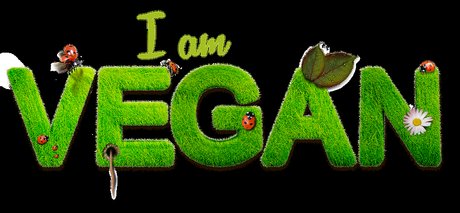
Veganism is feminist.
As someone who has been involved in feminist activism for years, I’ve observed that animal oppression is often a polarizing subject between vegan and non-vegan feminists. But it doesn’t have to be. Veganism can and should also be viewed as a complex issue that is part of a much broader cultural standard of objectifying and dehumanizing certain bodies under the patriarchy.
The hostility along vegan lines in the feminist movement seems to happen for a few reasons. For one, feminists are busy trying to attain rights for themselves and some are put off by their interpretation of animal rights activists as having a pretty hostile, single-issue approach to their work. Others feel like that vegan feminists’ attempt to tell others what they “should” be advocating for is “un-feminist” — especially when it comes to diet choices, which already generate immense cultural pressure for women. What’s more, horrific, insensitive memes that sloppily “compare” animal oppression to the oppressions minority groups experience under the guise of “intersectionality” are often passed around and are assumed to be representative of the whole animal rights movement.
All of these reservations about engaging with animal rights activists (and veganism at large) are absolutely understandable to a certain extent. Given our government’s routine intervention in women’s reproductive choices and media’s constant flow of oppressive narratives about the ways women should dress and act, it can be overwhelming when animal rights activists come to your camp to tell you what you “should” be doing or consuming.
As a vegan feminist, however, I think there’s a way to make the feminist case for veganism without telling feminists they “should” care about animal oppression or focusing on the diet-aspect of veganism. In fact, one of the most significant, yet often overlooked, reasons why feminists might want to reconsider veganism is because animal oppression is also a product of white supremacist patriarchy.
One of the ways that patriarchy keeps its power is by convincing us that another group’s oppression has absolutely nothing to do with our own. Any bodies that are being oppressed and slaughtered in the same system that’s harming us as women is a group that we might want to re-examine in our own activism. The ability to make connections to other vulnerable bodies only strengthens our feminist movement.
Feminists might also reconsider what it means to regard animals as beings that are naturally “less than” us. Hierarchies that say certain lives have more value than other lives inevitably breeds oppression and even violence. The white supremacist patriarchy that perpetuates the notion that women are less than men is the same one that has also pumped out the narrative that animals are less than humans. Just as cultural scripts promoting the idea that “boys will be boys” are circulated to excuse the problematic behaviors of boys and men, scripts about eating meat justify the problematic treatment of animal bodies. But the idea that animals don’t matter because they’re animals is coded with problematic notions about which bodies matter and which ones don’t.
When we adopt value systems from a white supremacist, patriarchal system, we jeopardize our liberation movements. We must always question scripts produced by the systems that oppress us and recognize that ending both messages falls under the same feminist agenda. Ultimately, feminists would do well to realize that the very bodies and topics that don’t seem like they relate to their own oppression might be the very key to their liberation.

